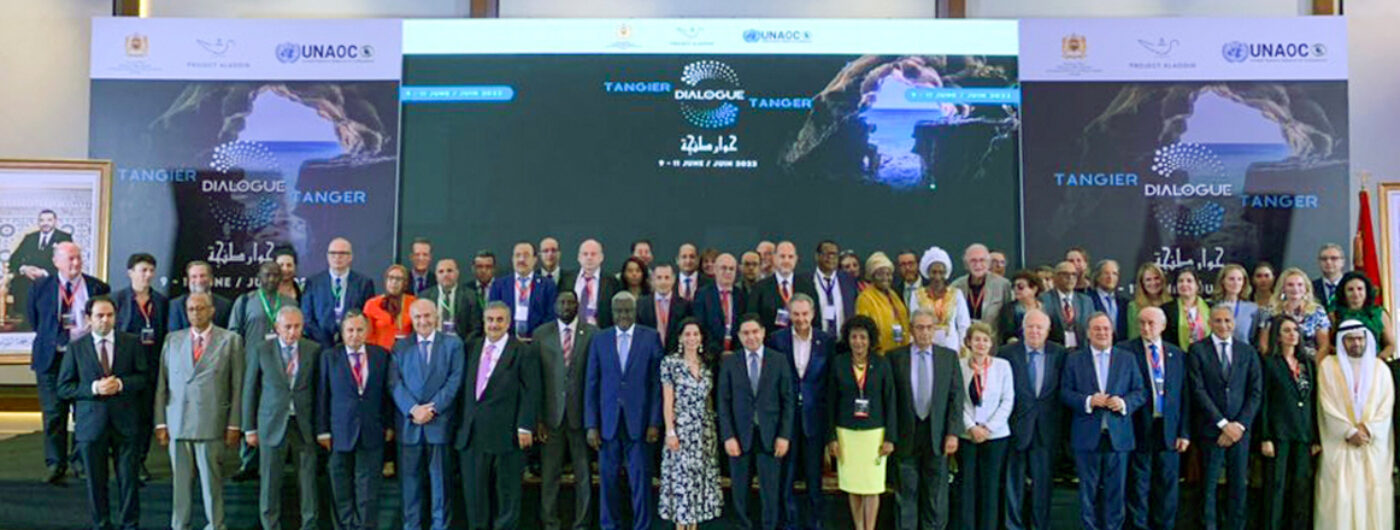
UfM Secretary General takes part in the Tangier Dialogue, bringing together over 80 leaders from politics, academia, religion and civil society
Tangier, 10 June 2022. The Secretary General of the Union for the Mediterranean, Nasser Kamel, participated today in the Tangier Dialogues, a prestigious conference co-organised by the Ministry of Foreign Affairs, African Cooperation and Moroccan Expatriates, the UN Alliance of Civilizations and Project Aladdin, in Tangier on 10-11 June 2022.
This high-level gathering saw the participation of Arab, African, European, and Asian countries, notably through the presence of Nasser Bourita, Minister of Foreign Affairs, African Cooperation, and Moroccan Expatriates, Miguel Angel Moratinos, High Representative of the United Nations Alliance of Civilizations, Moussa Faki, President of the African Union Commission, Pierre Moscovici, President of the Cour des Comptes, former Minister of Finance and of European Affairs of France and former European Commissioner for Economic and Financial Affairs, Mohamed Salem Ould Merzoug, Minister of Foreign Affairs of Mauritania, and through videomessages of Antonio Guterres, Secretary General of the United Nations, and Antony Blinken, Secretary of State for Foreign Affairs of the United States of America.
The UfM Secretary General took part of the 1st Jalsa (session), which explored the importance of economic factors in the dynamics of international relations in the post-Covid reality. He discussed the opportunities brought by the digital and green transition for shared prosperity and growth in the Euro-Mediterranean region, along with the possibilities of enhancing regional integration in the area. He underlined that “our belief is that any talk about a progress and recovery in the UfM region without due emphasis on economic integration is a counterfeit currency. Promoting regional integration as a prerequisite of inclusive and resilient growth. For value chain reconfiguration to yield a real benefit and become a lucrative scenario, many prerequisites are still missing on the region, including multimodal cross border infrastructure, logistics, market integration, among others. That is why we must increase the region’s attractiveness towards investors, support private sector development and ensure the digital transition to truly become a competitor in the new global economy”.
To learn more about the potential of regional integration in the Euro-Mediterranean region, visit the page.

